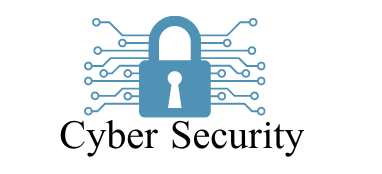The threat landscape is growing along with the digital world. Given the continual emergence of new threats and vulnerabilities, cybersecurity continues to be a major priority for both individuals and enterprises. We will discuss the most important cybersecurity incidents in this weekly roundup, offering critical insights and analysis to keep you informed and safe.
1. Major Data Breach at Global Tech Firm
A major multinational technology company revealed this week that millions of consumers’ personal information had been exposed in a data breach. After suspicious activity was found on the company’s systems, the breach was found. According to investigations, the attackers took advantage of a technical flaw in the company to obtain private client information, such as names, addresses, and payment details.
Analysis:
The significance of routine patch management and security audits is highlighted by this occurrence. To reduce the danger of such breaches, businesses need to make sure their systems are updated with the most recent security fixes. Furthermore, proactive threat detection and response can be facilitated by strong incident response strategies and ongoing monitoring.
2. Rise in Ransomware Attacks on Healthcare Sector
Over the past week, ransomware assaults have increased significantly in the healthcare industry. Targets included a number of hospitals and medical facilities, where the attackers claimed to have encrypted important patient data and demanded large ransoms to unlock it. In one well-known instance, a large hospital had to move its patients to other locations while they fixed their systems.
Analysis:
Attacks using ransomware against healthcare institutions can have disastrous results, affecting patient care and jeopardizing private medical data. Prioritizing cybersecurity measures including putting in place sophisticated threat detection systems, routinely backing up data, and training employees on phishing and other prevalent attack vectors should be a top priority for healthcare providers.
3. New Phishing Campaign Targets Financial Institutions
This week, a sophisticated phishing campaign directed towards financial institutions was discovered. In order to promote new compliance requirements, emails purporting to be from reliable financial authorities are sent to recipients, asking them to click on a link. The link installs malware that steals sensitive data, including login passwords, when it is clicked.
Analysis:
This phishing campaign emphasizes the importance of personnel training and strong email security procedures. Multi-factor authentication (MFA) should be used by financial institutions, and staff members should be trained to spot and report phishing attempts. Furthermore, before harmful emails arrive in the inbox, they can be identified and blocked with the use of sophisticated email filtering tools.
4. Critical Vulnerability Found in Popular Software
A widely used software program has a serious vulnerability that researchers have found that might let attackers run any malware on compromised PCs. This vulnerability could be used for a number of malevolent objectives, such as system compromise and data theft, and potentially impacts millions of people globally.
Analysis:
In cybersecurity, vulnerability management is essential. Finding and fixing software application vulnerabilities should be an organization’s top priority. One way to prevent exploitation is to update software often and use security tools like intrusion detection systems. It is recommended that users implement patches as soon as software suppliers release them.
5. Cybersecurity Legislation Update: New Privacy Law Enacted
This week saw the passage of a new privacy law with the goal of enhancing consumer rights to data protection and privacy. The law imposes more stringent guidelines on how businesses gather, preserve, and handle personal data. It also encourages companies to prioritize data security by imposing severe penalties for non-compliance.
Analysis:
The updated legislation takes into account the increasing importance of protecting and privacy of data. Organizations need to make sure their data handling procedures adhere to new legislation and stay up to date on regulatory changes. Establishing thorough data protection policies and carrying out frequent compliance checks can assist companies in avoiding legal issues and fostering customer confidence.
Conclusion
The world of cybersecurity is always changing, with new risks and difficulties appearing daily. It is imperative to remain up to date on the latest advancements in order to safeguard your digital assets. The necessity of consistent security updates, staff training, comprehensive incident response strategies, and regulatory compliance is highlighted in this week’s roundup. Individuals and organizations can strengthen their defenses against the constant threats in the digital environment by being proactive and alert.



